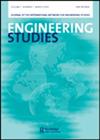离开工程师的动机:通过社会责任的视角
IF 1.3
3区 工程技术
Q2 EDUCATION, SCIENTIFIC DISCIPLINES
引用次数: 28
摘要
工程专业的核心应该包括对人、社区和社会福利的关注。关注工程学的这些有益属性可能有助于吸引个人,尤其是女性进入该领域。然而,亲社会动机的个人在大学期间离开工程是因为缺乏社会责任(SR)通常描绘在他们的教育吗?更多地了解学生在职业生涯中与感知到的社会责任相关的离职原因,可以帮助填补这一文献空白。34名原工科专业的学生参与了一项关于工科SR的定性研究。在这个队列中,14名女性中有7名希望通过工程帮助他人/社会,而7名女性中有0名的职业动机与社会影响目标的关系较小。对九名离开工程专业的学生进行了三轮长达一小时的采访,探讨了他们离开的原因,他们的个人SR是否/如何影响他们的决定,以及他们通过新的潜在职业道路设想的社会影响机会。访谈结果显示,专业亲社会欲望与不支持的环境、非情境化的技术课程和课程难度相结合,成为离职动机。这些结果为那些试图理解为什么有才华的学生选择离开工程,并创造一个更负责任和更有爱心的工程专业的人提供了见解。本文章由计算机程序翻译,如有差异,请以英文原文为准。
Motivations to Leave Engineering: Through a Lens of Social Responsibility
ABSTRACT Engineering should include concern for people, communities, and societal welfare at the heart of the profession. Focusing on these helping attributes of engineering may help draw individuals, particularly women, into the field. However, are prosocially motivated individuals leaving engineering during college due to the lack of social responsibility (SR) typically portrayed in their education? Understanding more about students’ reasons for leaving in relation to perceived social responsibilities through their careers can help fill this literature gap. Thirty-four students initially majoring in engineering participated in a qualitative study of SR in engineering. Among this cohort, 7 of 14 women motivated to help people/society through engineering left, compared with 0 of 7 whose professional motivations were less related to social impact goals. Three rounds of hour-long interviews with nine students who left engineering explored reasons for leaving, if/how their personal SR impacted their decision, and social impact opportunities they envisioned through their new potential career path. The interviews show professional prosocial desires are motivation to leave combined with unsupportive environments, decontextualized technical courses, and curricular difficulty. These results provide insights for those trying to: understand why talented students choose to leave engineering, and create a more responsible and caring engineering profession.
求助全文
通过发布文献求助,成功后即可免费获取论文全文。
去求助
来源期刊

Engineering Studies
ENGINEERING, MULTIDISCIPLINARY-HISTORY & PHILOSOPHY OF SCIENCE
CiteScore
3.60
自引率
17.60%
发文量
12
审稿时长
>12 weeks
期刊介绍:
Engineering Studies is an interdisciplinary, international journal devoted to the scholarly study of engineers and engineering. Its mission is threefold:
1. to advance critical analysis in historical, social, cultural, political, philosophical, rhetorical, and organizational studies of engineers and engineering;
2. to help build and serve diverse communities of researchers interested in engineering studies;
3. to link scholarly work in engineering studies with broader discussions and debates about engineering education, research, practice, policy, and representation.
The editors of Engineering Studies are interested in papers that consider the following questions:
• How does this paper enhance critical understanding of engineers or engineering?
• What are the relationships among the technical and nontechnical dimensions of engineering practices, and how do these relationships change over time and from place to place?
 求助内容:
求助内容: 应助结果提醒方式:
应助结果提醒方式:


